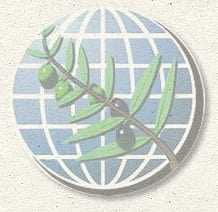 Avoiding double-ups and boosting impact are among the reasons for the first global survey of olive oil promotion, now being commissioned by the International Olive Council.
Avoiding double-ups and boosting impact are among the reasons for the first global survey of olive oil promotion, now being commissioned by the International Olive Council.
Intended to produce the equivalent of a worldwide Who’s Who of olive oil promotion, the IOC recently advertised that it would accept bids for the €91 000 ($123,569) contract until December 5.
According to the tender specifications, what will be the “first ever public reliable survey” will reveal the key players involved in activities promoting olive oil internationally, and what they are doing.
The survey results should allow the IOC and the wider olive oil Industry “to get a clear and comprehensive picture of the promotional efforts and budgets invested by the Industry all over the world.“
That shared knowledge should then help all industry members: define opportunities to grab, gaps to fill and markets to explore; co-ordinate the efforts of the various players; and try to avoid double usage/billings.
Overall, the IOC wants to “improve the synergy and therefore the impact” within the overall sector.
Specifically, it wants the successful tenderer to gather data on the various marketing investments/communication budgets for olive oil, in which countries they were or are used in, and why. Also the main promotional activities, type of media used and budget breakdowns.
The survey report, due by next May 16, must be in two versions: one for IOC-only use (including specifics such as names and budgets) and another public report (with generic categories and anonymized sources).
The IOC, which has its headquarters in Madrid, is the world’s only international intergovernmental organisation in the field of olive oil and table olives. Its roles include encouraging the expansion of international trade and increased consumption of olive oil and table olives.
Among other market research, it recently commissioned reports on consumption of table olives and olive oil in Australia, Japan and South Korea. The successful tenderer, Deloitte (Spain), must submit its findings by next January 4 on issues such as demand and market supply in each country in the last decade, and consumer profiles.
It must also evaluate Australia’s likely olive oil and table olive production and export trends in the next 10 – 15 years, and appraise its export capabilities. The budgets are: Australia: €85 000 ($115,421), Japan €80 000 ($108,632), and South Korea €75 000 ($101,842).








